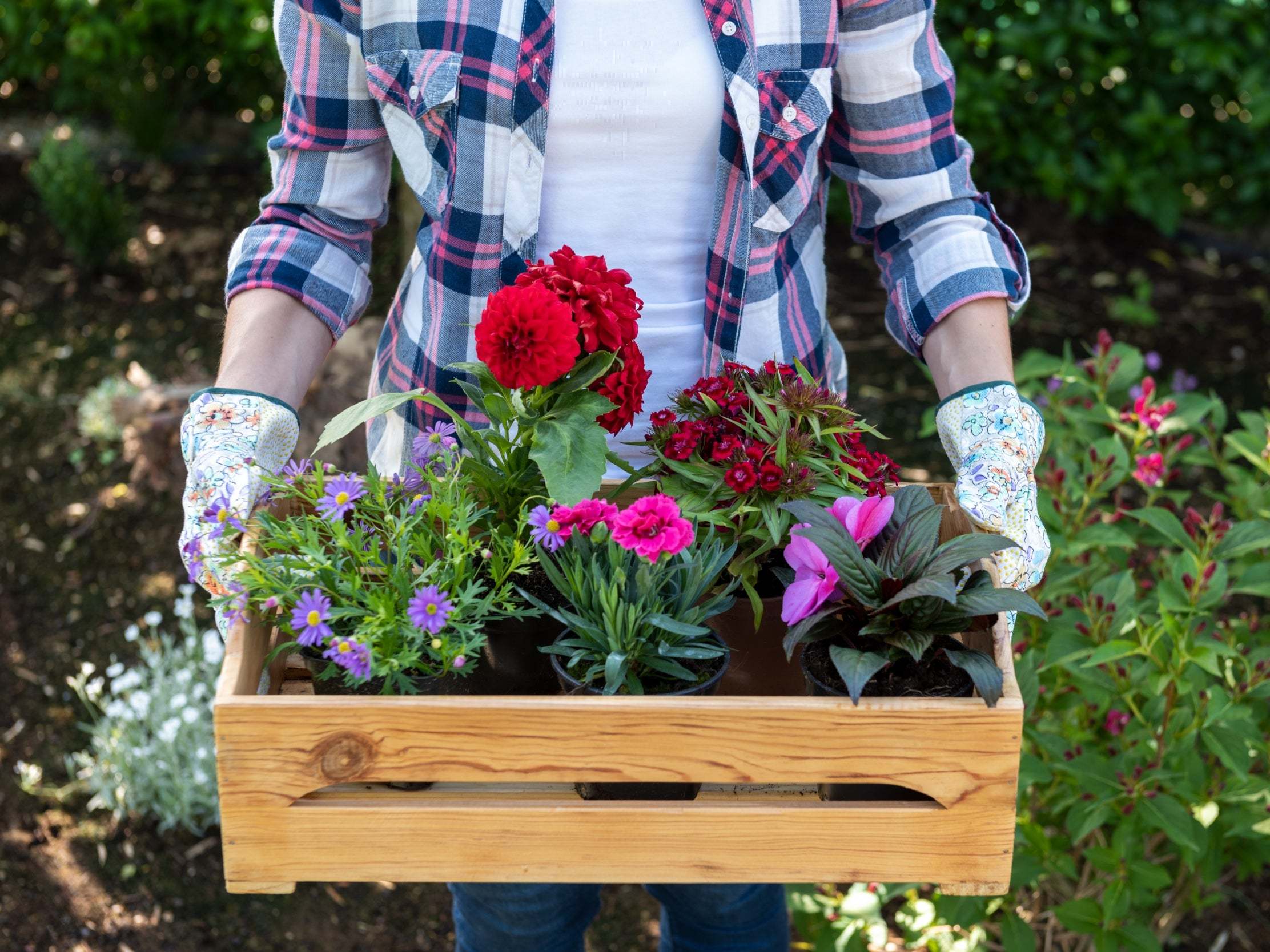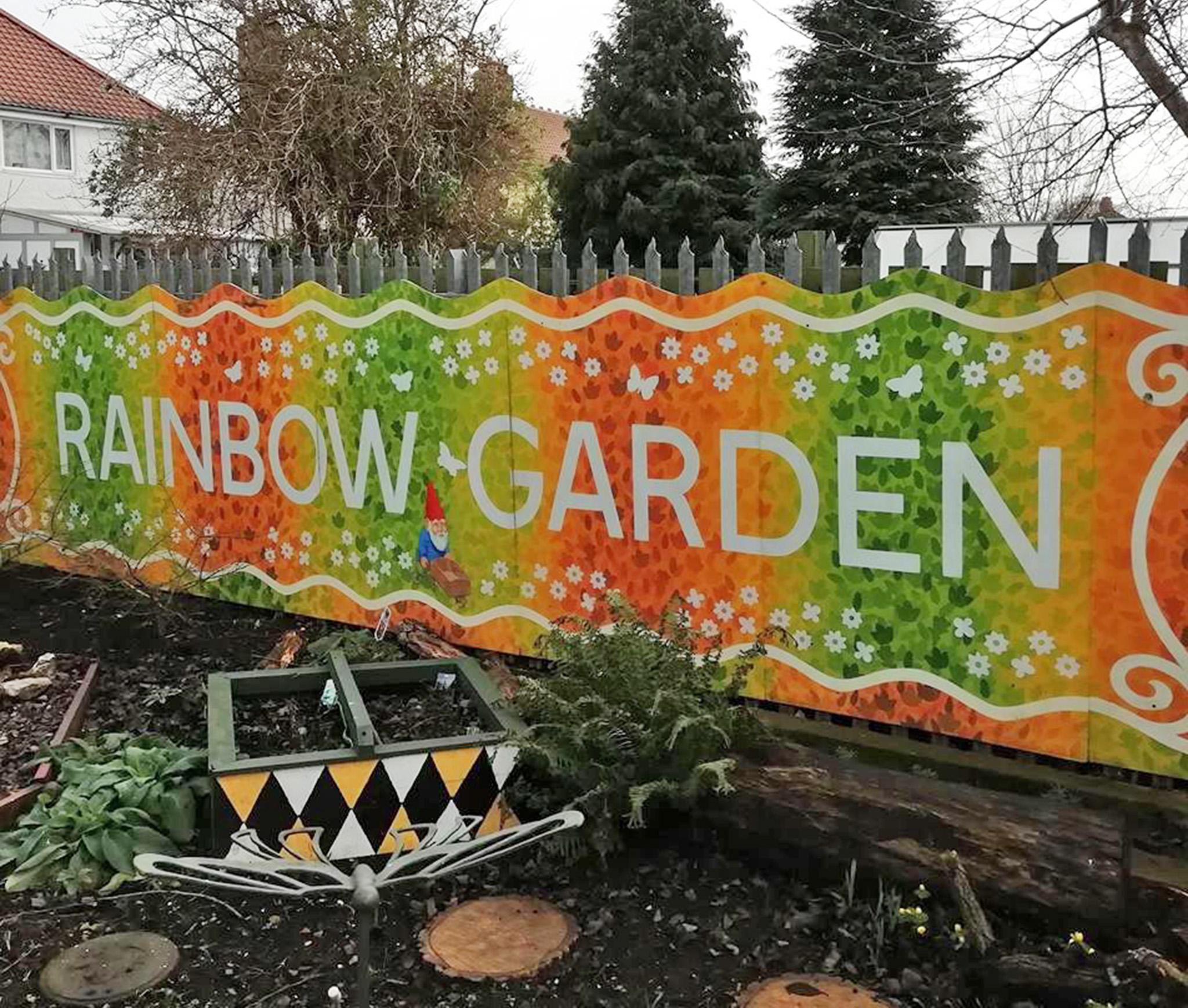Why doctors are prescribing gardening for anxiety and depression, instead of medication
Spending time outdoors and surrounding yourself with greenery and living things can be one of life’s great joys – and recent research also suggests it’s good for your body and your brain, writes Yvonne Black

Your support helps us to tell the story
From reproductive rights to climate change to Big Tech, The Independent is on the ground when the story is developing. Whether it's investigating the financials of Elon Musk's pro-Trump PAC or producing our latest documentary, 'The A Word', which shines a light on the American women fighting for reproductive rights, we know how important it is to parse out the facts from the messaging.
At such a critical moment in US history, we need reporters on the ground. Your donation allows us to keep sending journalists to speak to both sides of the story.
The Independent is trusted by Americans across the entire political spectrum. And unlike many other quality news outlets, we choose not to lock Americans out of our reporting and analysis with paywalls. We believe quality journalism should be available to everyone, paid for by those who can afford it.
Your support makes all the difference.Scientists have found that spending two hours a week in nature is linked to better health and wellbeing. It’s maybe not entirely surprising then that some patients are increasingly being prescribed time in nature and community gardening projects as part of “green prescriptions” by the NHS. In Shetland for example, islanders with depression and anxiety may be given “nature prescriptions”, with doctors there recommending walks and activities that allow people to connect with the outdoors.
Social prescriptions – non-medical treatments which have health benefits – are already used across the NHS to tackle anxiety, loneliness and depression. They often involve the referral of patients to a community or voluntary organisation, where they can carry out activities which help to meet their social and emotional needs, and increasingly doctors are opting for community gardening – as this also has the added benefit of involving time spent in nature – even in highly built-up areas.
And the evidence base for such treatments is growing – with research indicating that social prescribing can help to improve patients’ anxiety levels and general health. Findings also seem to suggest that social prescribing schemes can lead to a reduction in the use of NHS services.
The benefits of gardening
Research shows that gardening can directly improve people’s wellbeing. And that taking part in community gardening can also encourage people to adopt healthier behaviours. It may be, for example, that neighbourhood projects can be reached on foot or by bicycle – prompting people to take up more active transport options in their daily lives. Eating the produce from a community garden may also help people to form the habit of eating fresh, locally grown food.
Growing food is often the driving force behind community gardening projects, whether purely for the consumption of the gardeners or for local distribution or sale. Unlike growing on individual allotments or private gardens, community gardening requires an element of cooperation and collective planning. Working together towards shared goals can create a real sense of community. And in a garden, a feeling of connection may develop, not just with other people, but with the living world as a whole.
Gardens also play a significant role in conserving biodiversity, by developing wildlife pockets and corridors across towns and cities – an idea encouraged by the RSPB’s Giving Nature a Home programme. The inclusion of even a small pond in a garden can provide a home for important species such as amphibians. Gardens can also help to mitigate climate change. Their vegetation captures carbon and can improve air quality. Tree and shrub roots in the soil absorb water, reducing flood risk.
So because people’s relationship with the living world affects their behaviour towards it, taking part in community gardening could also make people old and young more environmentally conscious and responsible. By connecting people to nature, it may be that community gardens can also help to transform society – allowing towns and cities to move towards more sustainable futures.
Community connections
This process of using plants and gardens to improve health is known as social and therapeutic horticulture. On top of promoting physical and mental health benefits, social and therapeutic horticulture has also been shown to help improve people’s communication and thinking skills.

At Hull University’s Centre for Systems Studies we want to understand more about the ways community gardening can boost wellbeing for people, societies and the living world. So we are working with the Rainbow Community Garden in Hull, which also has links with local schools, social services, mental health teams and a veterans’ association, to observe activities and interactions over the course of a year. We are also interviewing staff and volunteers about their experiences, looking at how people’s wellbeing changes as they participate in the project.
Although no single intervention is right for everyone, community gardens do have wide appeal and potential. But such projects tend to be run by charitable organisations – often relying on grant funding to employ staff and provide equipment. And at a time when funding gaps mean that local councils are struggling to preserve public parks and gardens, it seems that despite all the positives that can be gained by such spaces, the future of many community gardening groups could be uncertain.
This would clearly be a massive loss, as individual wellbeing, societal wellbeing and the living world are all inextricably linked. John Donne was correct when he said “no man is an island”. Community gardens can bring together diverse groups of people and it’s possible to make these spaces widely inclusive and accessible. Raised beds and paved pathways, for example, can improve access for wheelchair users, while a complex sensory experience can be created using scents and sounds as well as visual stimuli. We hope that our research will help to highlight the importance of these places and the many benefits they can bring for people, society and the living world.
Yvonne Black is a PhD researcher in systems science at the University of Hull. This article first appeared on The Conversation
Join our commenting forum
Join thought-provoking conversations, follow other Independent readers and see their replies
Comments